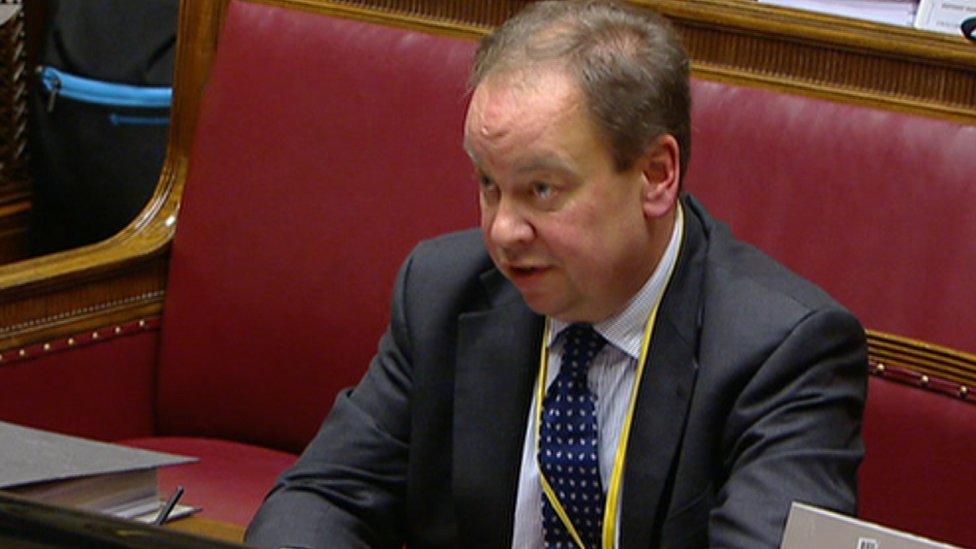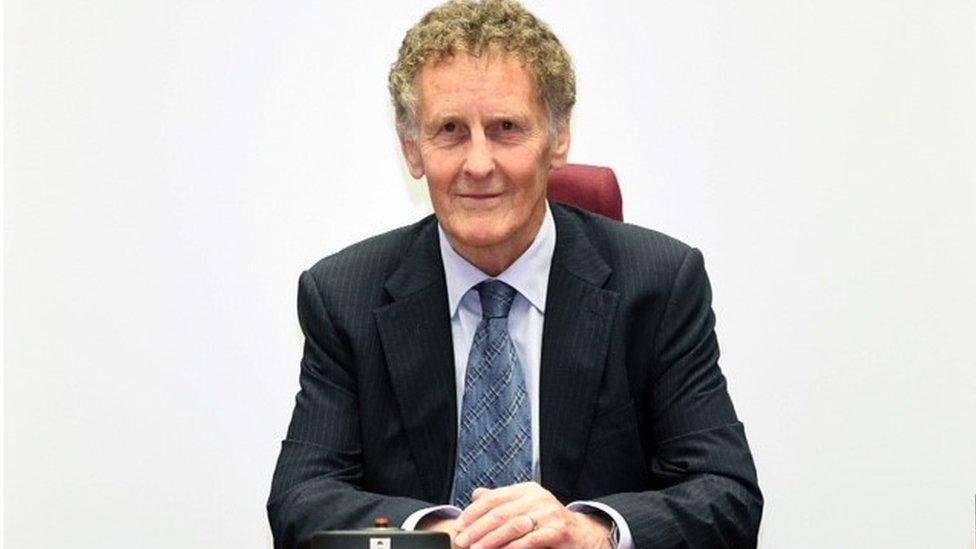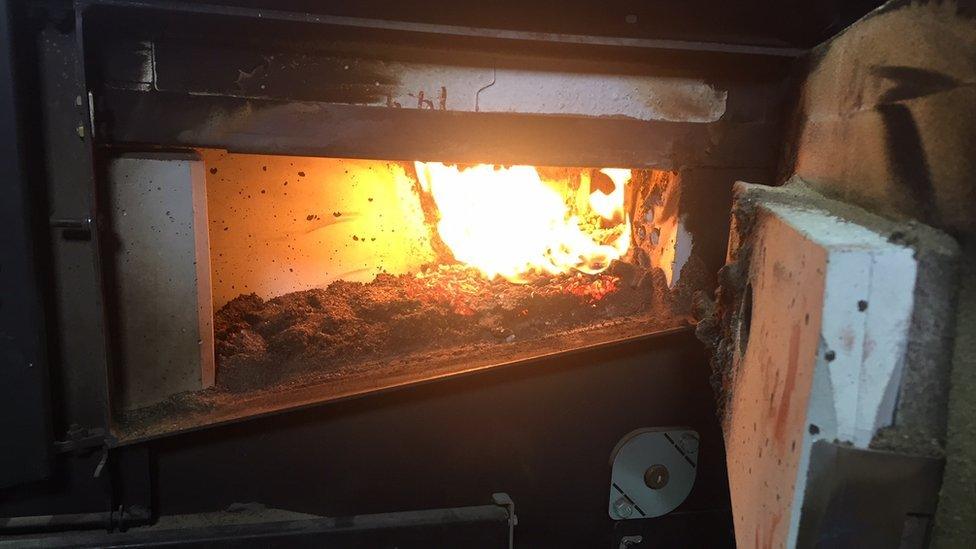RHI inquiry: 'My team should have noticed energy scheme flaw'
- Published

Mark Cockburn gave evidence to the public inquiry into the flawed green energy scheme on Thursday
The director of a firm of consultants who designed the RHI scheme has said his team should have noticed a fatal flaw in the plans.
Mark Cockburn gave evidence to the public inquiry into the flawed green energy scheme on Thursday.
His economists gave recommendations on the final shape of the project, including proposed tariffs.
But they failed to spot the discrepancy between the cost of the biomass and the incentive to switch to it.
The subsidy offered to firms that switched from oil to biomass was higher than the cost of the green fuel, creating the "burn to earn" incentive which landed the Northern Ireland taxpayer with a potential bill of £700m.
He was asked how they had missed such a key part of the plan, especially when both the fuel cost and the subsidy level were in the final report sent to the Department of Enterprise, Trade and Investment (DETI).
Mr Cockburn said it "shouldn't have been".

Sir Patrick Coghlin is chairing the RHI Inquiry, which is expected to last for several months
The consultants produced two separate pieces of work for DETI in 2011 and in 2012.
In the 2011 report, the subsidy levels were lower than the cost of the fuel.
But, after public consultation, they were asked to look again at the subsidy levels for biomass amidst what the inquiry heard was DETI's "concern" that the Northern Ireland rates were lower than those in the rest of the UK.
'Gaming'
The inquiry was told that was because the fossil fuel that firms were being encouraged to switch away from here was oil rather than gas.
Because oil was more expensive than gas, the subsidy needed to make it attractive to switch did not need to be as high as in the rest of the UK.
Inquiry chair Sir Patrick Coghlin said increasing the subsidy levels in the second report ought to have triggered an "automatic reflex" to check that they were still value for money against biomass prices.
In reply, Mr Cockburn said he "just didn't think it was in the front of anyone's mind".

The inquiry was set up in response to public concern about the scheme's huge projected overspend
He also said that he could not believe the extent to which firms here ran their boilers just to earn subsidy, a practice known as "gaming".
"There's gaming and there's gaming and I would never have thought that people could game it as much as actually happened," he said.
The firm undertook two separate pieces of consultancy in relation to the RHI scheme and was paid more than £60,000 for its work in 2011 and 2012.
Earlier, Mr Cockburn said the second piece of work had a very narrow focus and a tight budget.
The inquiry's chairman, Sir Patrick Coghlin asked if that meant the company had been "limiting everything you did because you weren't being paid enough".
Mr Cockburn said there had not been the budget for a wider piece of work and costs were a consideration for a commercial organisation.
'Missed that point'
Sir Patrick said an inference could be drawn that even though they were a professional expert organisation, if they saw something in an area which they were not being paid to review, they would not have passed it on.
Mr Cockburn denied that, he said that if they had spotted a problem "they would have brought it to DETI's attention".
Sir Patrick then asked whether they had flagged the fact to the department that the subsidy level had been set higher than the fuel costs.
"As I have said previously, we missed that point," Mr Cockburn replied.
- Published29 November 2017

- Published28 November 2017

- Published14 November 2017
